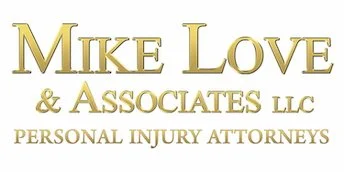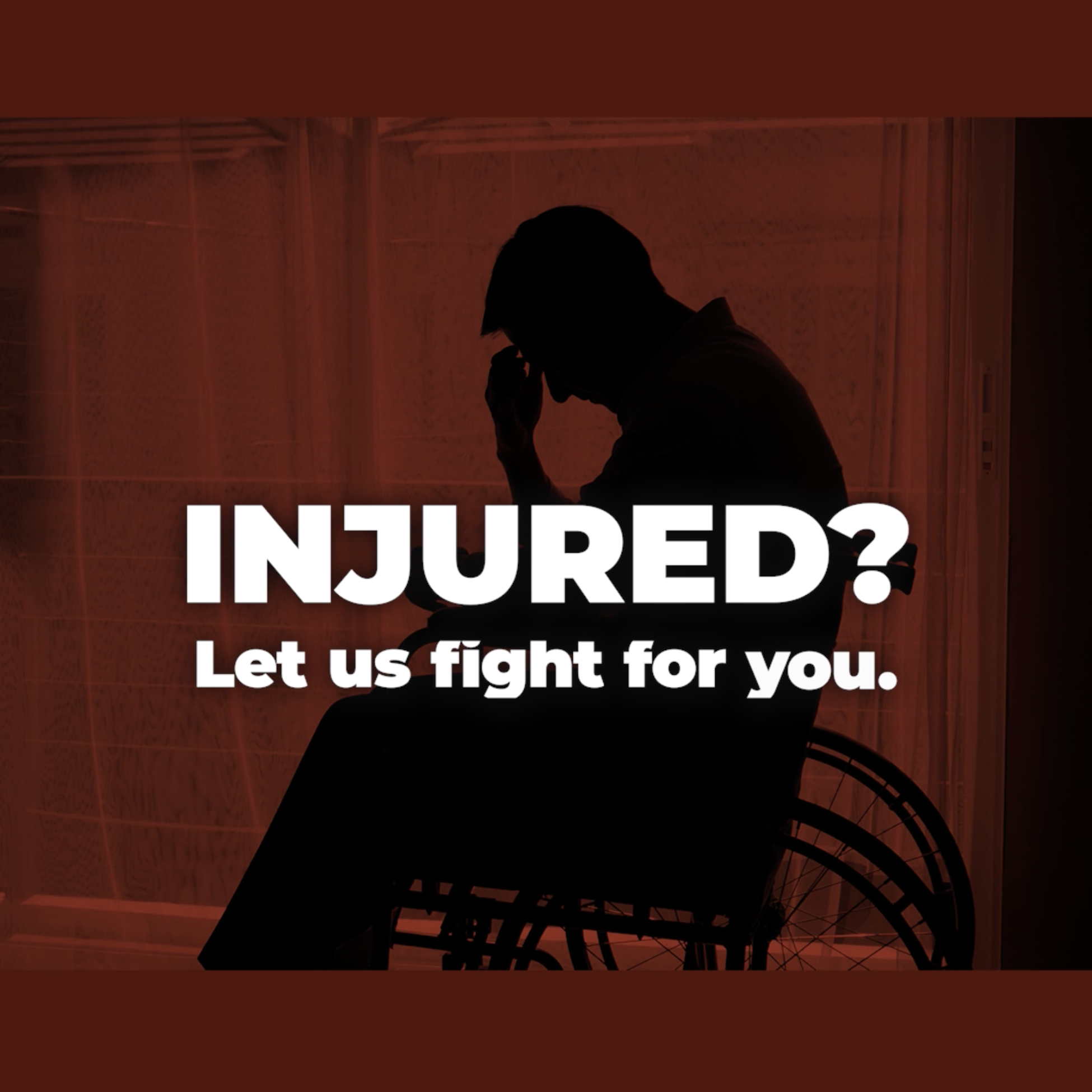Why should I hire an experienced local attorney?
If you are injured in an East Texas accident, you might have difficulty finding medical professionals to work with you. Out-of-town attorneys likely don't know which doctors will take on an accident case and may not try to help you find great doctors. We recommend hiring an experienced local law firm if you've been injured. Call 936-632-2000 today. We can help!
If you need medical treatment after an accident, you are most likely going to need an experienced personal injury attorney to fight for your rights.
If you are injured in an East Texas accident, you might have difficulty finding medical professionals to work with you. Inexperienced and out-of-town attorneys likely don't know which doctors will take on an accident case and may not try to help you find great doctors. We recommend hiring an experienced local law firm if you've been injured. We can help!
Never expect an insurance company to do the best thing for you. Insurance companies will often stonewall or flat-out deny your medical claims after an accident. We not only fight the insurance companies for every dollar you deserve in compensation for your injuries, but we can also provide you with the upfront funds you need to secure excellent medical care while your judgment or settlement is pending.
You can call us for your 100% free consultation today, then make an informed decision with full knowledge of your rights under state law.
We are here to help. If you don't need us, no problem. At least you will have solid advice on what to do next and the traps to avoid when dealing with the insurance company.
Let’s Start 2026 Without an Unintended Bang
Happy New Year!! Please watch out for these two on the roads this week.
Watch out for Father Time and Baby New Year This Week!
New Year’s Eve is one of the most dangerous times to be on the road in East Texas and nationwide. Whether drivers are racing to the party, texting friends, or intoxicated, distracted driving accidents wreck the celebration. Here are some things to watch for if you want to stay safe on Angelina County roads this New Year’s Eve.
KEY DANGERS AND TRENDS FOR 2025
Peak Distraction Times: Research indicates distracted driving is highest on New Year's Eve between 8:00 p.m. and midnight, as drivers often rush to celebrations while multitasking.
Post-Midnight Surge: Miles driven increase by 400% in the hour after midnight, creating dense traffic where even a brief distraction can cause multi-vehicle accidents.
New Digital Distractions: Laws effective in 2025 (e.g., in Illinois) specifically target videoconferencing and social media use while driving, highlighting these as growing risks.
The "Double Jeopardy" Effect: Holiday driving often combines distraction with other risks, like:
Fatigue: Late-night driving can lead to "microsleeps" where a driver is mentally distracted for 3–4 seconds without realizing it.
Navigation: Drivers heading to unfamiliar party locations are more likely to focus on GPS screens than the road.
Social Coordination: Coordinating rides or texting "ETA" messages increases significantly during this period.
CRITICAL STATISTICS
Blind Distance: Reading a text for just 5 seconds at 55 mph is equivalent to driving the length of a football field with your eyes closed.
Fatality Projections: The NSC estimated 375 deaths on U.S. roads during the New Year's Day period for the 2024–2025 season; risks remain similarly high for 2025.
Daily Toll: In the U.S., distracted driving kills approximately nine people every day on average, a rate that spikes during major holidays.
SAFETY RECOMMENDATIONS
Set Navigation Early: Input your destination into the Google Maps or Waze app before putting the car in gear.
Use "Do Not Disturb": Enable "Do Not Disturb While Driving" on your smartphone to silence incoming alerts.
Designate a Texter: If traveling with passengers, designate one person to handle all communication and music adjustments.
Avoid the "Danger Zone": If possible, stay off the roads between midnight and 3:00 a.m., which are the peak hours for fatal alcohol and distraction-related crashes.
Use Alternatives: Utilize the Uber or Lyft apps to avoid the stress of navigating holiday traffic yourself.
Everyone at Mike Love & Associates, LLC wishes you a safe and joyful New Year. Please remember to take good care of yourself and all of our East Texas neighbors on the road this week. Together, we can make 2026 the safest yet!
Volunteers Serve 1000 Families at East Texas Food Bank Event
KTRE News covers the East Texas Food Bank Holiday Food Distribution Event sponsored by Mike Love & Associates, LLC at the Angelina County Exposition Center on Dec. 1, 2025.
KTRE News covers the East Texas Food Bank Holiday Food Distribution Event sponsored by Mike Love & Associates, LLC at the Angelina County Exposition Center on Dec. 1, 2025.
Once again, a huge thank you to KTRE-TV for their continuing coverage of yesterday's East Texas Food Bank Holiday Mobile Distribution Event in Lufkin, TX! This effort would not have been possible without the support of every outstanding volunteer who worked through the rain and cold to serve over 1,000 Angelina County families. An extra special thanks to reporter Vanessa Johnson, who stayed with us and endured the elements for hours to share the story.
Original Facebook Post from the East Texas Food Bank on December 1, 2025:
The East Texas Food Bank distributed food to over 1,000 families in Lufkin this morning. Apples, potatoes, chicken, and nonperishable items were available. Despite the bitter cold and rainy weather, so many wonderful volunteers showed up and braved the elements to help our neighbors. We can't say thank you enough!
We would also like to thank Mike Love & Associates, LLC, for its support and sponsorship of this distribution.
The event took place at the Angelina County Exposition Center located at 1200 Ellen Trout Dr, Lufkin, TX 75904.
For more information on local food assistance in Lufkin, TX, and Angelina County, don't hesitate to get in touch with the Deep East Texas Resource Center at 105 Lofton St, Lufkin, TX 75904. Phone: (936) 238-3291 Website: https://www.easttexasfoodbank.org/lufkin/
Mike Love and Associates, LLC is a personal injury law firm in Lufkin, TX. If you are hurt in a car wreck, truck wreck, at work, or anywhere in Angelina County, call for your free consultation. We can help!
Travel Safety Tips for the Holiday Season
Stay safe on the road this holiday season with these essential travel safety tips from Mike Love & Associates. Get the advice you need to prevent accidents.
⚠️🦃Being injured in a distracted driving accident is never a fun way to spend the holidays. Please stay focused and be aware of all the other turkeys on the road around you. Here are some additional tips for those long holiday drives:
1. Get Enough Sleep: Drunk and drowsy driving are similar; a lack of sleep is one of the greatest dangers for motorists taking long road trips. Drowsiness can significantly raise your chances of being involved in an accident.
2. Inspect Your Vehicle: Your vehicle cannot protect you if certain parts are not in working condition. Before setting out on a trip, it is wise to receive a tune-up. A qualified mechanic can check your brakes and pads, head and tail lights, car battery, tires, and fluids.
3. Always Remember to Drive Safely During Your Trip: Long-distance driving requires extra attentiveness to road etiquette and safety. Use extra caution while traveling through work zones.
4. Do Not Speed: You should pay careful attention to speed limits during your travels.
5. Always Avoid Distractions: Drivers should never use mobile phones, eat, or apply makeup.
6. Be Nice: Never tailgate other drivers, and do not drive in the left-hand passing lane.
Happy Holidays!! ❤️💛💚
The best way to avoid an accident is to take preventive action and plan. If you are injured in an accident this holiday season, contact the Texas personal injury attorneys at Mike Love & Associates, LLC. We wish everyone a happy holiday season. Please stay safe!
Mike Love & Associates Supports the East Texas Food Bank
Mike Love & Associates, LLC donates $10,000 to the East Texas Food Bank for the annual Holiday Food Distribution event on December 1st at Angelina County Exposition Center. The event will feed over 1,000 local families in need of food assistance.
Lufkin personal injury law firm Mike Love & Associates, LLC, is partnering with the Deep East Texas Resource Center - East Texas Food Bank to provide food assistance at the annual Holiday Food Distribution Event on December 1, 2025. The event will be held at the Angelina County Exposition Center from 11 am to 2 pm. Last year’s event helped feed over 1,200 families, and this year the East Texas Food Bank expects a larger turnout. On Tuesday, Mike Love, founding partner of Mike Love & Associates, and Tim Butler, Chief Development Officer of the East Texas Food Bank, spoke with KTRE News about the need for donations from local businesses and families in the Lufkin area. With SNAP benefits and federal aid decreasing, there’s an increased need for support this year compared to recent years. Visit the Deep East Texas Resource Center website to learn more and donate: https://www.easttexasfoodbank.org/lufkin/ Many neighbors have already contributed generously, but we still need your help to reach our goal. Please join us in fighting hunger TODAY. The mission of the East Texas Food Bank is to fight hunger and feed hope throughout East Texas. The Deep East Texas Resource Center, a program of ETFB based in North Lufkin, connects community members to resources, offers a food pantry, benefits assistance, and other support services. Last year, they served over 1.4 million meals. Our donations to the Deep East Texas Resource Center - East Texas Food Bank directly support families right here in Angelina County.
We want to hear your story.
Your consultation will always be with an experienced trial attorney. We are here to listen.








